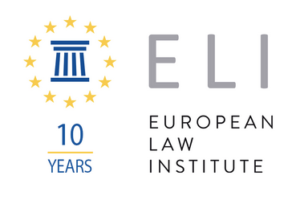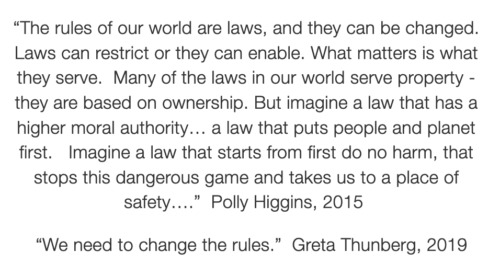
Why no charges of ecocide have ever been filed.
Ecocide
The term ‘ecocide’ refers to the ‘devastation and destruction of the environment to the detriment of life’, but no legal definition between States has yet been agreed. This project will promote the discussion towards the criminalisation of ecocide.
For an overview of past and upcoming meetings of this project, please click here: Quick Facts
Project Type: Model law
Procedure: Regular
Adopted: CD 2021/9
Project Period: February 2021–September 2022
Background
The idea of ecocide was first proposed in the 1970s during the Vietnam War by biology professor Arthur W. Galston, when he was protesting against the US military using the herbicide and defoliant chemical, Agent Orange, to destroy the foliage cover and crops of enemy troops.
Since then, many civil society organizations and lawyers have supported the criminalization of ecocide in international law.
In putting a proposal to the UN Law Commission designed to amend the Rome Statute of the International Criminal Court (ICC) to include ‘ecocide’ as a fifth crime against peace, the late Polly Higgins defined ecocide as ‘the extensive damage to, destruction of or loss of ecosystem(s) of a given territory, whether by human agency or by other causes, to such an extent that peaceful enjoyment by the inhabitants of that territory has been or will be severely diminished’.
“At the end of a three-year case representing a person who had been injured at work, Higgins described looking out the window at the Court of Appeal and thinking:
“‘The earth is being injured and harmed as well and nothing is being done about it’ and ‘the earth is in need of a good lawyer.’
“Subsequently, she stopped practicing as a barrister to focus on advocating for an international law that would hold business executives and governments to account by rendering them criminally liable for the environmental harm that they cause.
“Ecocide had been proposed as one of the international crimes against peace in 1996, but failed to be included in the final Rome Statute of the International Criminal Court. Higgins started to campaign for its inclusion in around 2009.
“She explained in 2010 that ecocide ‘leads to resource depletion, and where there is escalation of resource depletion, war comes chasing behind.
“Where such destruction arises out of the actions of mankind, ecocide can be regarded as a crime against peace.’
“She lobbied the United Nations Law Commission to recognise ecocide as an international crime, but at the time of her death, this goal had not been achieved.
“As part of her campaign, Higgins wrote, Eradicating Ecocide, and started the Earth Protectors fundraising group. She was a founder of the Earth Law Alliance.
“In 2009, Higgins was described by The Ecologist magazine as ‘one of the world’s top ten visionary thinkers.’
“She was ranked number 35 in Salt magazine’s 2016 Top 100 Inspiring Women of the world list.”
The latest development is that Philippe Sands QC and Dior Fall Sow are co-chairing an Independent Expert Panel for the Legal Definition of Ecocide as a potential international crime.
At present ecocide is only considered a war crime under Article 8(2)(b)(iv) of the Rome Statute.
However, no charges have ever been filed, possibly on account of the very high threshold of injury required under the article – there must be an intentional attack that causes ‘widespread, long-term and severe damage to the environment which would be clearly excessive.’
Corporate and State criminal responsibility is also excluded under the Rome Statute.
Thus, corporations and States which cause water and air pollution or participate in illegal deforestation and cause oil spills, which would constitute a crime in times of war, in peacetime, cannot be prosecuted for their environmental damage.
The 2018 UN Report ‘Gaps in international environmental law and environment-related instruments: towards a Global Pact for the Environment’ (UN SG Report A/73/419) found the existing environmental law regime to be fragmented, piecemeal, unclear and reactive.

With no single overarching legal framework or institution and largely voluntary and non-binding obligations, international environmental law cannot be used to prosecute ecocide.
Although at least two environmental treaties – the Convention on International Trade in Endangered Species of Wild Fauna and Flora and the Basel Convention on the Control of Trans-boundary Movements of Hazardous Wastes and their Disposal – require States to create domestic criminal laws on specific subjects, they are ‘episodic and limited in scope’, only applying within State boundaries, and do not extend to ecocide more generally.
The lack of national legislation goes hand-in-hand with a lack of harmonization of the criteria for identifying the crime of ecocide. This is true both internationally and at the EU level.
Aim
The project aims to enable the ELI as a promoter of law reform to participate in the debate on the definition of ecocide as a crime against humanity and offer constructive analysis and criticism of the proposal which will emerge from Sands and Sow’s expert drafting panel and define the aspects characterizing the crime of ecocide and the conditions for prosecution in the European framework.
In this way, this ELI study will make it possible to identify the elements of the crime of ecocide that may constitute the legal basis for the adoption of EU legislation.
At the same time, the project will help raise awareness and muster support in Europe for bringing the crime of ecocide within the Rome Statute.
The project will also support the current political and legal actions aimed at imposing an EU-wide and trans-boundary duty of care in order to prevent the risk of and/or actual extensive damage to or destruction of or loss of ecosystem(s) by prohibiting any natural or legal person from committing or aiding and abetting ecocide, through the imposition of criminal sanctions.
Outcome
The project aims to: (i) contribute towards making ecocide an international crime, (ii) draw up a model law for the European Union criminalizing ecocide, and (iii) draw up a model law for the European Union providing for civil remedies in tort for ecocide and the implications for private international law.
The intention is to proceed in stages.
Given that what will emerge from the deliberations of the Sands group will consist in all likelihood only of the actus reus of the crime of ecocide, the Project Team will concentrate in the first place on that element of the crime.
In a second stage, the necessary mens rea will be considered.
Thirdly, it will be considered whether it is necessary to specify who may be prosecuted.
The present thinking is that, in view of the notorious difficulties associated with corporate criminal liability, it is best to use neutral language thereby leaving it to each Member State to determine what approach to take in the light of the constraints imposed by its legal system.
Fourthly, the Project Team will consider the possibility of creating offenses of conspiring to commit and funding ecocide.
Fifthly, it will consider the question of civil remedies and questions of private international law and conflicts of law.

The Mother’s Blue Diamond Energy of Hope for Balance Everywhere

THE SCALES OF JUSTICE, OF WORTH AND OF THE UNIVERSE, IN BALANCE



